Which proteins to consume?
Proteins are large classified as essential amino acids and non essential proteins amino acids. Non-essential proteins are the ones that are naturally produced within the body. Hence, a person need not obtain it from the diet. On the contrary, essential amino acids are the ones that are not produced within the body. Hence, it is essential for a person to obtain them through external sources. There are 9 essential amino acids – histidine, isoleucine, lysine, leucine, methionine, phenylalanine, tryptophan, threonine, and valine.
Foods or sources that provide all the 9 essential amino acids are called whole protein or complete protein. Usually, animal derived sources protein are complete sources of protein while plant derived sources are incomplete sources. Hence, if you do not want to rely on animal sources, then make sure to combine two or more plant derived sources to obtain all the essential ones. Here are the 10 affordable sources of protein for you to count on. Since, all the protein that you take may not be digestible and available; it is advisable not to rely only on one single source of protein.
1) Milk (1 gram protein = Rs. 1.275)

Milk is the most affordable and the most commonly available source of protein that you can come across. A cup of whole milk has about 8 grams of protein and almost equal amounts of fat. Hence, it is advisable to have low fat or skimmed milk that gives the same amount of protein without any or little fat.
| Nutritive Value per 244 grams of Milk (1 Cup) | |
| Component | Amount |
| Protein | 8 grams |
| Calcium | 24% of Daily Intake |
| Iron | 0% of Daily Intake |
| Fiber | 0 grams |
| Sodium | 100 mg |
| Carbohydrates | 13 grams |
| Cholesterol | 20 mg |
| Saturated Fat | 3 gram |
Coming to base structure, milk (irrespective of whole or skimmed) contains 18 amino acids which includes all the 9 essential amino acids. Hence, it is a complete source of protein.
Second benefit of having milk lies in its chemical composition. No matter which type of milk you choose, its composition largely is 80% Casein proteins and 20% whey proteins. Whey, as we all know, is a rapidly digestible protein. Casein on the other hand is a sustained form and slowly releases itself into the blood stream.Thus, having milk after working out is a smart choice. Whey part will take cares of the immediate needs and Casein part will give a long term supply.
2) Chicken (1 gram proteins = Re. 1)
 It is widely known that meat is a great source of protein. Chicken is probably the most popular meat source of protein. It is highly preferred because it is cheaper as compared to beef or red meat, more easily available, easy to cook and is a delicacy. Chicken breasts supplies about 31 grams of proteins per 100 grams. Thus, about 200 to 300 grams of chicken a day can take care of the daily protein intake of an average person.
It is widely known that meat is a great source of protein. Chicken is probably the most popular meat source of protein. It is highly preferred because it is cheaper as compared to beef or red meat, more easily available, easy to cook and is a delicacy. Chicken breasts supplies about 31 grams of proteins per 100 grams. Thus, about 200 to 300 grams of chicken a day can take care of the daily protein intake of an average person.
| Nutritive Value per 100 grams of Chicken | |
| Component | Amount |
| Protein | 31 grams |
| Calcium | 1% of Daily Intake |
| Iron | 6% of Daily Intake |
| Fiber | 0 grams |
| Sodium | 74 mg |
| Carbohydrates | 0 grams |
| Cholesterol | 85 mg |
| Saturated Fat | 1 gram |
Chicken is also a complete source of protein. It contains about 18 to 19 amino acids which include all the 9 essential amino acids in generous amounts. In addition, it contains small amount of vitamins, considerable amounts of mineral as well. It is better not to subdue the benefits of this ingredient by cooking it an unhealthy manner. Try to stick to low oil or grilled or smoked chicken.
3) Rajma or Kidney Beans (1 grams proteins = Rs. 0.3)
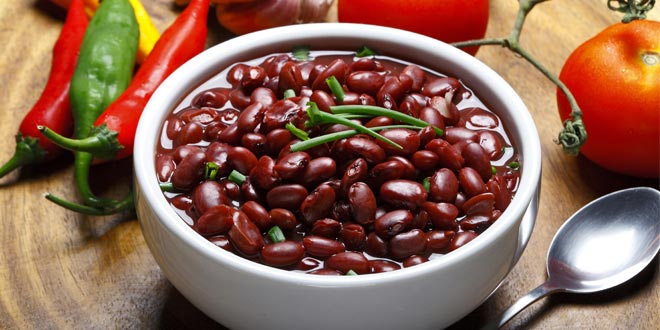 Beans are one of the most popular ingredients when it comes to vegetable derived sources of proteins. Every 28 grams of Kidney Beans serves around 7 grams of proteins. This is for raw kidney beans. The nutritive value reduces when you boil the beans for cooking.
Beans are one of the most popular ingredients when it comes to vegetable derived sources of proteins. Every 28 grams of Kidney Beans serves around 7 grams of proteins. This is for raw kidney beans. The nutritive value reduces when you boil the beans for cooking.
| Nutritive Value per 28 grams of Kidney Beans | |
| Component | Amount |
| Protein | 7 grams |
| Calcium | 4% of Daily Intake |
| Iron | 14% of Daily Intake |
| Fiber | 7 grams |
| Sodium | 4 mg |
| Carbohydrates | 16 grams |
| Cholesterol | 0 mg |
| Saturated Fat | 0 gram |
Although, kidney beans are a great affordable source of protein, they are an incomplete source. They do not provide all the essential amino acids and hence, they need to be coupled up with some other source. It is advisable to have kidney beans along with brown rice and they both make up for each other.
4) Badaam or Almonds (1 grams proteins = Rs. 2.3)
 Nuts have a high reputation when it comes to nutritive foods. They are often included in the diet in small portions to give a boost of nutrition. The most widely known nut and acclaimed for its nutritive value is Almond. Every 28 grams of Almonds gives 6 grams of proteins.
Nuts have a high reputation when it comes to nutritive foods. They are often included in the diet in small portions to give a boost of nutrition. The most widely known nut and acclaimed for its nutritive value is Almond. Every 28 grams of Almonds gives 6 grams of proteins.
| Nutritive Value per 28 grams of Almonds | |
| Component | Amount |
| Protein | 6 grams |
| Calcium | 7% of Daily Intake |
| Iron | 6% of Daily Intake |
| Fiber | 3 grams |
| Sodium | 0 mg |
| Carbohydrates | 6 grams |
| Cholesterol | 0 mg |
| Saturated Fat | 1 gram |
Almonds are too an incomplete source of protein but since they can be consumer raw, you get almost all of their nutritive components. Have a handful of almonds in the evening as a high energy snack. Almond is just a member of the nuts family. Other nuts like Walnuts also score high on the nutrition index.
5) Peanut Butter (1 grams proteins = Re. 1 – Rs 2)
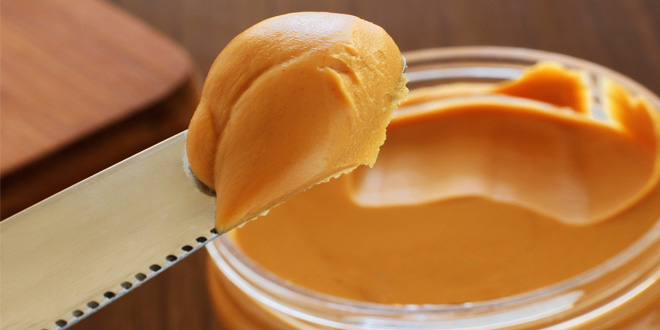 There can no easier way of obtaining protein than having peanut butter. It is one of the most commonly available and affordable products in the market. You can pick up peanut butter from any brand that you like. One serving i.e. 32 grams provides 8 grams of proteins.
There can no easier way of obtaining protein than having peanut butter. It is one of the most commonly available and affordable products in the market. You can pick up peanut butter from any brand that you like. One serving i.e. 32 grams provides 8 grams of proteins.
| Nutritive Value per 32 grams of Peanut Butter | |
| Component | Amount |
| Protein | 8 grams |
| Calcium | 1% of Daily Intake |
| Iron | 3% of Daily Intake |
| Fiber | 2 grams |
| Sodium | 5 mg |
| Carbohydrates | 6 grams |
| Cholesterol | 0 mg |
| Saturated Fat | 3 gram |
6) Paneer or Cottage Cheese (1 gram protein = Rs. 2.5)
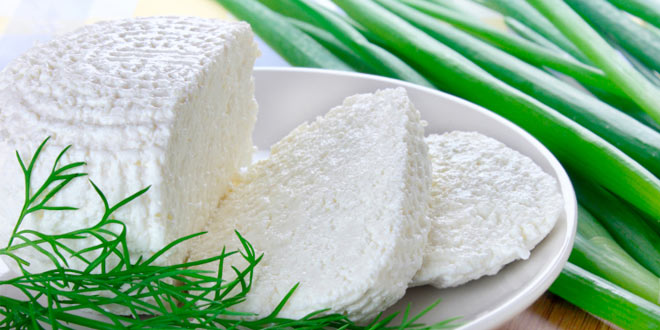 Basically, all the dairy products, since derived from milk, are a great source of proteins. Paneer is easily available in the market and can also be made at home with ease. One serving of Cottage Cheese i.e. 100 grams gives 12 grams of proteins.
Basically, all the dairy products, since derived from milk, are a great source of proteins. Paneer is easily available in the market and can also be made at home with ease. One serving of Cottage Cheese i.e. 100 grams gives 12 grams of proteins.
| Nutritive Value per 100 grams of Cottage Cheese | |
| Component | Amount |
| Protein | 12 grams |
| Calcium | 8% of Daily Intake |
| Iron | 0% of Daily Intake |
| Fiber | 2 grams |
| Sodium | 114 mg |
| Carbohydrates | 1 grams |
| Cholesterol | 1 mg |
| Saturated Fat | 0 gram |
Derived from milk, cottage cheese too, is a complete source of protein. It has all the 9 essential amino acids and also supplied a good amount of vitamins and minerals. You can have paneer or cottage cheese in any way you like. Simply toss a few chunks in a dish or soup that you like. You can also barbeque the paneer chunks and have them with vegetables. You can buy Paneer from the market or make it at home with ease. Check out how to make it at home here.
7) Eggs (1 gram protein / Rs. 0.4)
 Eggs are yet again, a very cheap, easy available and one of the richest natural sources of proteins. Every serving i.e. 1 egg provides 6 grams of proteins.
Eggs are yet again, a very cheap, easy available and one of the richest natural sources of proteins. Every serving i.e. 1 egg provides 6 grams of proteins.
| Nutritive Value per 50 grams of Egg | |
| Component | Amount |
| Protein | 12 grams |
| Calcium | 3% of Daily Intake |
| Iron | 5% of Daily Intake |
| Fiber | 0 grams |
| Sodium | 70 mg |
| Carbohydrates | 0 grams |
| Cholesterol | 211 mg |
| Saturated Fat | 2 gram |
Eggs are also a complete source of protein. They contain all the amino acids that are found in milk. You just need to be careful about one thing. Protein in contained in the egg white while the egg yolk (yellow part) is just cholesterol. Hence, have egg whites and discard the yolk if you are trying to cut down on the body fat. Egg white omelets are popular among bodybuilding enthusiasts. You can also have boiled eggs which are healthier than omelets asthey do not contain any added oil.
8) Masoor ki Daal or Lentils (1 gram protein = Rs. 0.4)
 Pulses are a source of choice for people who are looking for vegetarian sources of proteins. Lentils are highly proteinaceous and every serving of 28 grams provides 7 grams of proteins.
Pulses are a source of choice for people who are looking for vegetarian sources of proteins. Lentils are highly proteinaceous and every serving of 28 grams provides 7 grams of proteins.
| Nutritive Value per 28 grams of Lentils | |
| Component | Amount |
| Protein | 7 grams |
| Calcium | 2% of Daily Intake |
| Iron | 12% of Daily Intake |
| Fiber | 9 grams |
| Sodium | 2 mg |
| Carbohydrates | 17 grams |
| Cholesterol | 0 mg |
| Saturated Fat | 0 gram |
Lentils are incomplete sources of proteins and they do not contain cysteine and methionine – 2 of the 9 essential amino acids. In order to cover up, you can have lentils with whole grains like rice or wheat (chapatti)as they contain good amounts of these 2 amino acids. Moreover, rice and wheat do not have lysine which lentils have in good proportions. This combination ensures that you get all the essential amino acids through your diet in good proportions.
9) Fish (1 gram protein = Re. 1 to Rs. 1.25)
 Fish is widely known for its nutritive value. It has long been suggested by health experts for great heart health. Different fishes have different concentrations of proteins. However, in general, fishes are a great source of protein. Rohu or Cod Fish provides about 20.8 grams of per fillet i.e. 116 grams. Baangda or Mackerel provides 21 gram of protein per fillet i.e. 112 grams.
Fish is widely known for its nutritive value. It has long been suggested by health experts for great heart health. Different fishes have different concentrations of proteins. However, in general, fishes are a great source of protein. Rohu or Cod Fish provides about 20.8 grams of per fillet i.e. 116 grams. Baangda or Mackerel provides 21 gram of protein per fillet i.e. 112 grams.
| Nutritive Value per 112 grams of Mackerel | |
| Component | Amount |
| Protein | 12 grams |
| Calcium | 2% of Daily Intake |
| Iron | 12% of Daily Intake |
| Fiber | 9 grams |
| Sodium | 2 mg |
| Carbohydrates | 17 grams |
| Cholesterol | 0 mg |
| Saturated Fat | 2 gram |
| Omega-3 Fatty Acids | 2991 mg |
| Nutritive Value per 116 grams of Cod | |
| Component | Amount |
| Protein | 20.8 grams |
| Calcium | 1% of Daily Intake |
| Iron | 2% of Daily Intake |
| Fiber | 0 grams |
| Sodium | 82 mg |
| Carbohydrates | 0 grams |
| Cholesterol | 43 mg |
| Saturated Fat | 0 gram |
| Omega-3 Fatty Acids | 256 mg |
10) Cheese (1 gram protein = Rs. 1.75)
Cheese is often regarded as an unhealthy ingredient however this is far from truth. Cheese is a highly nutritious food and is a very rich and an easily available, affordable sourc e of protein. Each serving of Swiss cheese i.e. 28 grams contains about 8 grams of protein.
e of protein. Each serving of Swiss cheese i.e. 28 grams contains about 8 grams of protein.
| Nutritive Value per 28 grams of Swiss Cheese | |
| Component | Amount |
| Protein | 8 grams |
| Calcium | 22% of Daily Intake |
| Iron | 6% of Daily Intake |
| Fiber | 3 grams |
| Sodium | 54 mg |
| Carbohydrates | 6 grams |
| Cholesterol | 26 mg |
| Saturated Fat | 5 gram |
Swiss cheese is a very commonly available type of cheese. It is the regular yellow coloured cheese that is widely available in the market. Derived from milk, cheese is a complete source of protein. Since, cheese is also rich in fat, its intake should be monitored by people who are weigh conscious. Having a limited amount of cheese is indeed a nutrition boost.
If you monitor your diet and eat what is right, you won’t need to rely on expensive Protein supplements. With these easily available and affordable ingredients, you can get enough protein solely with your diet.
 IBB – Indian Bodybuilding IBB – Home of Indian Bodybuilding and Fitness
IBB – Indian Bodybuilding IBB – Home of Indian Bodybuilding and Fitness



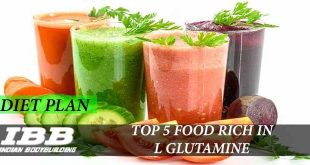
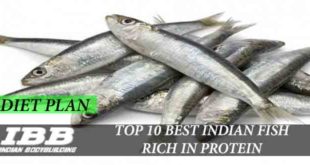
Thanks a lot iBB.you people are doing very fine job.all the best to you.keep sharing such articles.
Good
Thank you so much IBB for such a wonderful info
I m very poor. Only can afford milk and black gram, how can i gain muscles?
How does 1 gram of protein in Eggs costs 0.4 Rps?